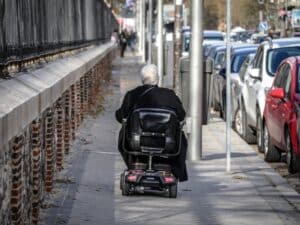5 Tips And Advice For Travelers With Disabilities

Traveling is one of the ways to fulfill your dreams and bring happiness. We should, however, not forget that travel can come with challenges regardless of your travel purpose. Travelers with disabilities can experience more difficulties while traveling. Whether you are visually impaired or a wheelchair user, you need to be extra careful and ascertain that your journey is safe.
However, whatever might be the cause of your physical limitation, you should not shy away from traveling. Fortunately, in today’s world, accessible travel is catching up, and with a little planning, you can make your journey hassle-free.
These five tips are some of the things that can make your trip safer and smoother.
1. Make Early Reservations
Before embarking on your trip, you need the assurance that your safety and needs are all set in place. While most travel destinations and hotels can accommodate people with special needs, some would require some time to prepare for your needs. Some facilities like wheelchair and mobility scooter accessibility can be available for permanent premises access.
However, some facilities may require modification to meet the personalized needs of the traveler. It would be essential for you to ascertain that your hotel meets your needs before your arrival. Before making a reservation, inquire about the availability of amenities you would require during the visit.
The reason for booking your hostel in advance is to ensure that they are well-prepared to accommodate you. Make a call a day or two before your arrival time to ensure that your preparations are ready according to your request.
2. Be Ready for Security Checks
When traveling, you pass through many places that require you to go through security checks at various points. Airport entries are the most common places you have to undergo thorough screening before you can get in. Your hotel reception may also carry out their checks on you before allowing you into their premises.
With this awareness, you can prepare and make the work of security personnel easy. You may be required to take off your shoes and have a pat-down search. If you are unsure, you should call the security department at your airport and your hotel to get enough information about the safety requirements and how you can make their work easier. Remember, all these requirements are for your safety – and everyone else traveling.
3. Take Direct Flights
Sometimes, people prefer connecting flights between cities before reaching their destination. There are various advantages for connecting flights, but they may not be favorable for everyone. For instance, this method of traveling will help you to save a few bucks on your ticket. You also get a break when connecting flights so that you can experience various cities before reaching your destination.
For travelers with special needs, this experience might not be in their favor. If you have to make special reservations, alighting at various cities will be inconvenient and way too expensive. Special needs facilities may attract extra charges.
Having to come down from the plane and get into another can also be tedious, especially if you use a wheelchair or need a special walking aid. A direct flight will save you all the inconveniences and challenges as you only need to come off the plane at your destination and direct to your hotel.
4. Carry Tools and Spares for Your Wheelchair
When traveling, you may have your wheelchair disassembled upon arrival at the airport or the travel facility. You would need to reassemble the mobility aid before you can use it again when you alight. Whether you are traveling solo or with a companion, you would need the toolset and spares that would require replacement on the way.
Apart from your tools, you also need the skill to put your wheelchair together. Your companion also needs the skills so that he can help you when it becomes necessary. Without adequate preparation, you may get stranded. It would also be tough to find a mobility aid for hire to help you get to your destination.
5. Consult Your Doctor
Your doctor needs to know about your intended trip so that they can offer you adequate support. Differently-abled people may need medication, and your doctor knows best when you should take your supply and advice concerning your trip.
Explain to your doctor why you plan to travel, how long you would stay, and your intended activities. Your doctor will give you enough medical supplies to last you through your trip. With enough medical supplies, you would not need to be moving around trying to purchase any pills you would need regularly. Cutting down your movements will make your trip less troublesome, and you will have enough time for some fun activities.
To Wind Up
Differently-abled people sometimes have a hard time doing various things around. The omission of accessibility features and services specifically for the disabled can be a nightmare at some points. Traveling can be worse if you are not sure about your destination. Hence, there is a need for upfront arrangement and preparation to ensure that your trip is hassle-free.